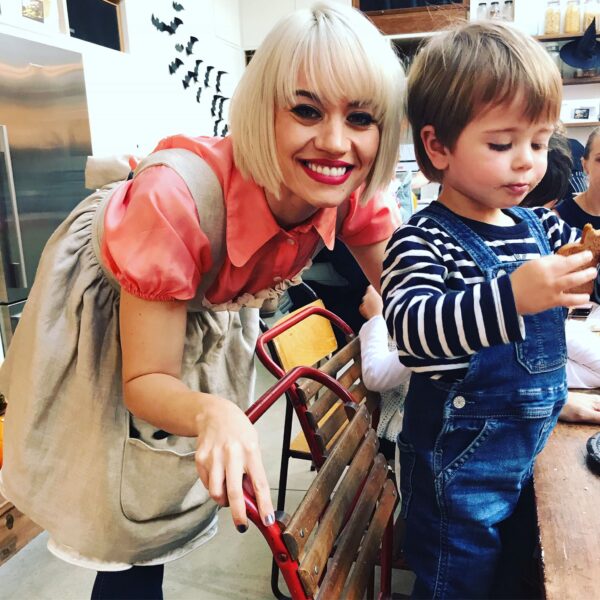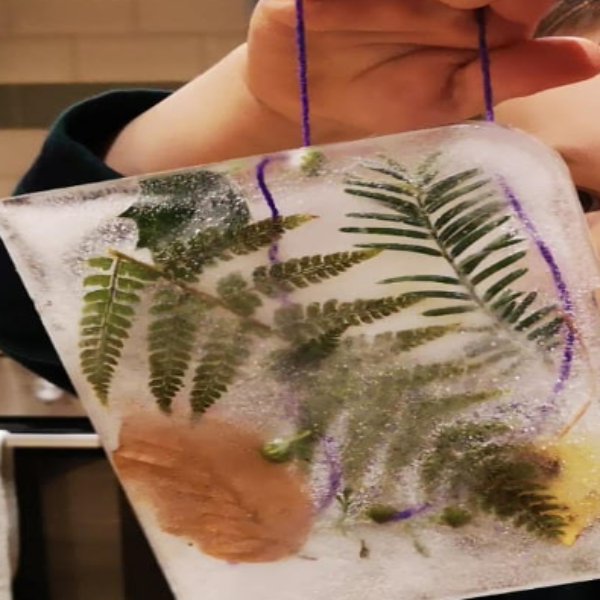
This week’s lockdown learning session is all about how to get the write start. These creative writing tips for kids come from elementary school teacher and mum of 3 under 5 Ana Jenkins. With a masters in education from the University of Minnesota, over the last decade Ana has taught budding young writers across three continents and is currently raising three of her own.

Does your child groan when it’s time to start writing? Mark making needs to be fun for you and your little one. Here’s a few ideas to spark some inspiration.
Before we start bear in mind that the intent of this post is to help you encourage mark making for your toddler or young child. Please don’t panic or run out to buy various supplies! These are just ideas to motivate your kids in lockdown and beyond! These ideas are mostly geared toward 3-6 year olds, but many ages will enjoy them.

Different Mediums
If your child finds mark making tasks boring, maybe motivate them with writing in or on a different material. Not only are they fun but white boards also create less resistance than typical paper and pencil, which can go a long way with little hands.
When it comes to writing tips for kids make it exciting! Rainbow scratch paper is lots of fun. Additionally, drawing or writing on them helps build up strong hand muscles.
You could even try putting shaving foam or flour on a baking tray. Your kids can write and draw while getting a bonus of some messy play! Add water to the flour at the end for some added play with “dough”.

So many of us also have extra boxes lying around because of our online orders. Let the kids draw on these! Below are some skylines made out of frozen pizza boxes.

Building Strong Hands
There are lots of different kinds of play-doh you can buy or make at home. Squeezing, pinching, and poking the dough will help your little one build those important hand muscles!

If your child is unmotivated, see if they can use their toys to make tracks, or see what you can (safely!) let them play with from the kitchen. Can they make patterns by pressing the dough on different objects? If your child is a bit older, see if they can roll a long snake and write the letters of their name/sight words/ spelling words.

Encouraging Pincer Grasp
Children develop at all different speeds when it comes to how they hold their pencil! This is totally normal, so don’t stress it if they are still grasping with their entire hand.

One way to encourage the pincer grasp (the way we hold our pencils) is to give your child broken crayons to colour and write with. This forces them to pinch it with the tips of their fingers instead of their entire palm.

Make It A Game

Try encouraging kids to write in different ways. Can they roll a die and write their name/letter in different colours? My Year 2 students loved practicing their spelling words in all different ways with this activity. Some of the favourites included: bubble letters, rainbow letters, block letters, fancy letters, you name it! There are lots of other templates/ideas online. Don’t have dice? You can make some out of a cereal box!

Keep It Fun
As difficult as it is, if your child is unmotivated, don’t push it too hard at this age. If they are spelling phonetically or are writing letters the wrong way, let it go for now and see what gets them excited about writing. Can you fold a few pages together so they can make a “book”? Is someone’s birthday coming up and your child could make a card? If your child is a super early writer, see if they will trace over your writing for the card. (Write correct words in yellow colouring pen and see if they can trace them) Keep everything as positive as possible, when kids are in their early days of writing they may write some letters/numbers the wrong direction or spell words phonetically—as hard as it can be, try not to overcorrect. Maybe you can’t read it, but can they read it back to you? If they can, excellent! This is exactly what they should be doing at this emergent writing stage. Very early writing is often just scribbles, but praising the mark making is important, these are the early first steps!

All of this learning is a marathon, not a sprint: young children will have lots of time to develop the right grip, spell correctly, and write letters neatly. Keep it relaxed not just for your child, but for your own sanity too! Writing is our voice, and helping children realise that is a special thing to watch. If they can think it, they can say it, if they can say it, they can write it! What stories will your child tell?
Happy writing,
Ana
What are your favourite writing tips for kids and how are you finding home schooling in lockdown? Share your thoughts, questions and tips in the comments below.

